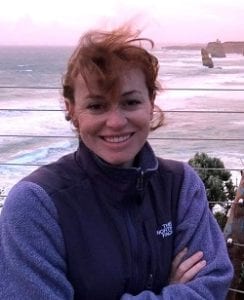 First, the title is a lie. I learned many things in Berkeley’s Environmental Law Clinic, but loving the study of economics was not one of them. Instead, in my semester with ELC, I learned to embrace both my role as a translator of complex material to an administrative agency and the general public and to embrace ambiguity and uncertainty in complex public policy issues.
First, the title is a lie. I learned many things in Berkeley’s Environmental Law Clinic, but loving the study of economics was not one of them. Instead, in my semester with ELC, I learned to embrace both my role as a translator of complex material to an administrative agency and the general public and to embrace ambiguity and uncertainty in complex public policy issues.
In August 2017, my two colleagues and I, under the guidance of our supervising attorney set out to address a question that was only tangentially related to any of our areas of expertise. Over the semester, the project challenged us to engage with economic studies, interpret them, and propose counter arguments. The following are some of my takeaways from my attempts to (1) achieve a level of proficiency in a foreign subject to challenge experts’ findings in that field and (2) to marshal inconclusive data or competing conclusions to support our argument.
Read it Again, and Again, and Maybe Ag…
My default strategy was to read it again, but I quickly saw that there is a balance between being prepared enough to ask informed questions and relying too heavily on words on the page. My first foray into the literature to analyze our question was uneventful. I read the materials, I highlighted, and looked for weaknesses and points that we needed to address. I was just dipping my toe in the kiddie pool of economics. The second foray was a different story. No longer calmly wading in the kiddie pool, my process to understand the literature looked more like a drowning. (I once saw a video of a black bear thrashing around in a kiddie pool. It was sort of like that.) After an initial panic, I read the article again, and, I kid you not, again and again. Moving forward I saw that was not a sustainable strategy. I did still budget approximately three times the time it would take to complete a normal reading, but I developed a more exacting eye for concepts and conclusions that were important.
Ask for Help, but Focus on the Broader Picture and Stay Skeptical
The second strategy was to ask experts and professors for help. This had mixed results. Some experts were able to broadly speak about concepts related to our study while others quickly focused on questions related to their own research. While having an expert supplement my understanding of their work was incredibly helpful, the most informative meetings we had were with experts who had no skin in the game. That is, experts who could look at the contours of the issue with a trained eye, but without a strong bias towards one conclusion or another.
While we met with many helpful individuals, it was important not to lose sight of our question and how a particular study might be just one piece that informs the larger picture. We left one expert meeting feeling particularly overwhelmed and dejected about the researcher’s conclusions, but ultimately we concluded that even if the researcher was correct, the question was ancillary to our issue. In addition to avoiding rabbit holes and futile explorations into ancillary subject matter, it was important to maintain our skepticism. Our group environment was particularly conducive to this. We could voice our ideas and reservations and address them and move forward.
Ideas that Lack Research Support Matter As Well
Related to maintaining our skepticism and scrutinizing the true reach of a studies findings, it was important use the academic experts’ studies to support our broader argument, but not to overlook ideas that researchers had not yet studied.
Dilettante Extraordinaire
This semester, in response to an unconventional set of facts, my Administrative Law professor remarked on how interesting it is as a lawyers to learn about so many esoteric issues or fields. In Week 2 of the semester when I was thrashing around in that kiddie pool, I likely would not have agreed with him. But 15 weeks in, I have a genuine affection for the subject matter and appreciation of some of the skills that it takes to quickly build expertise in new subject matter.